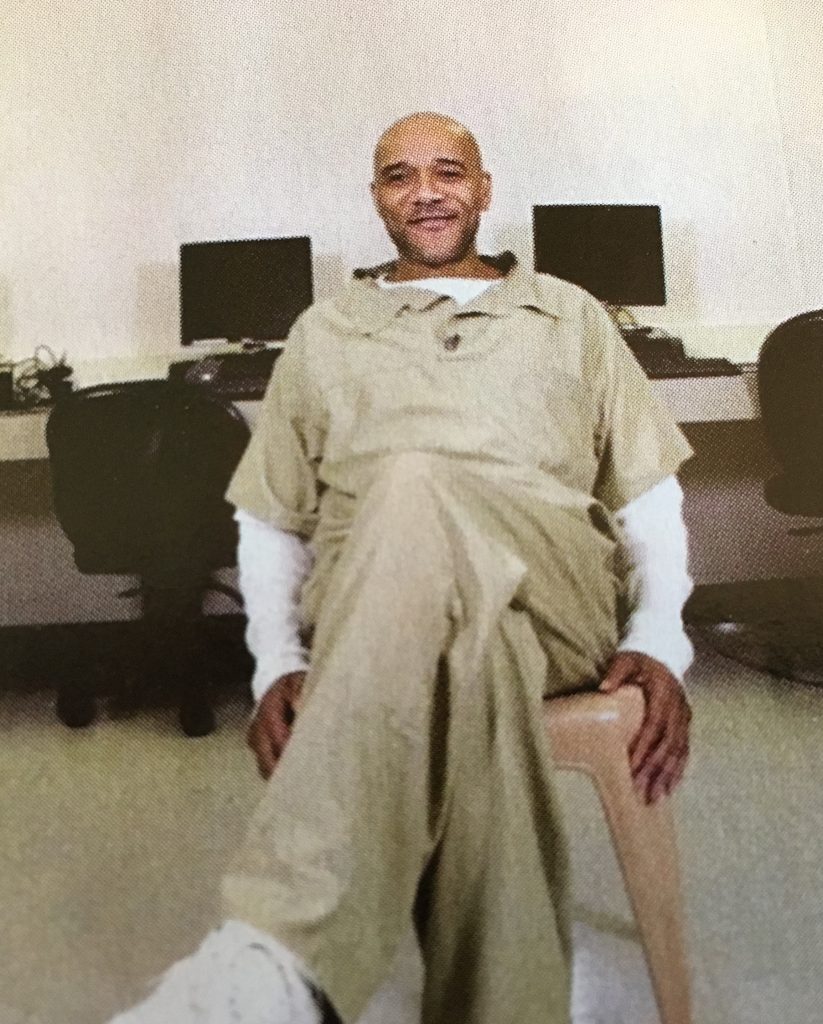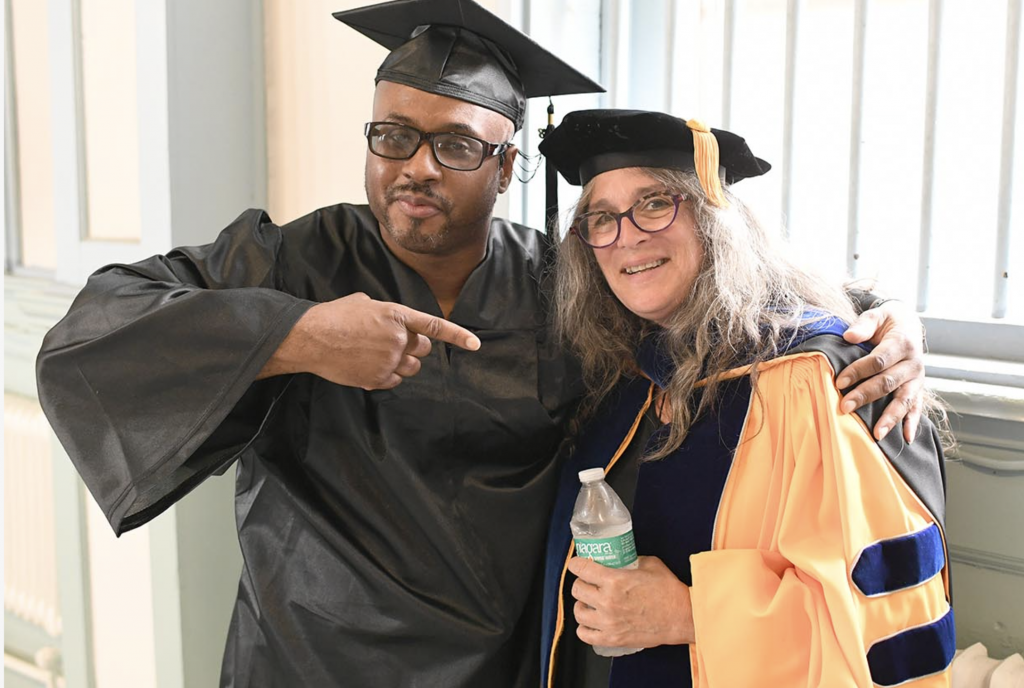Three of Wesleyan’s Graduating Philosophy Majors Earned Their Degrees While In Prison
This month, the first group of seven incarcerated men will be graduating from a recently created program at Wesleyan University with their Bachelor’s degrees. Three of them—Michael Braham, Clyde Meikle, and Andre Pierce—will be graduating as philosophy majors.

Clyde Meikle
The work to make this happen started 12 years ago, and involved several institutions, according to Lori Gruen, professor of philosophy at Wesleyan University. She writes:
In 2009, a group of Wesleyan undergraduates, with supportive faculty, created the Center for Prison Education (CPE) and began a pilot offering Wesleyan courses for credit in Cheshire Correctional Institution, a maximum security men’s prison. We admitted 18 students and offered 2 courses a semester. After the two-year pilot, we expanded the number of students by admitting new cohorts every other year and started offering more courses. In 2013 we began offering courses at York Correctional Institution, Connecticut’s women’s prison. In 2016, we partnered with Middlesex Community College to allow students to pursue Associate’s Degrees. And in 2019, Wesleyan Faculty and then the Board of Trustees approved a non-residential Bachelor’s of Liberal Studies.
Professor Gruen, who is one of the faculty involved with the CPE, notes that at Wesleyan, philosophy majors can choose a general philosophy track or a social justice track. Both tracks require ten courses, two of which must be advanced seminars, and two of which in the social justice track must be from outside of philosophy, but relevant to the student’s social justice focus. She says:
Michael, Clyde, and Dre are completing the social justice track. I was able to offer two advanced seminars, one on the “Social Contract” in which students read Rawls’ Theory of Justice and Mills’ The Racial Contract, among other readings. The second seminar was a philosophy “proseminar” in which students were exposed to a variety of different areas of philosophy. I arranged to have five philosophers come into the prison over the course of the semester: Lewis Gordon (Connecticut) taught about existentialism, Sally Haslanger (MIT) taught about metaphysics, Lisa Guenther (Queens) taught about phenomenology, Jason Stanley (Yale) taught about philosophy of language, and Diana Tietjens Meyers (Connecticut) taught about aesthetics. Since 2010, I have taught an additional five courses on topics in social and political philosophy and ethics. My Wesleyan colleague Tushar Irani has offered two courses in ancient philosophy.

Andre Pierce and Lori Gruen
In an email, Professor Gruen expressed curiosity about whether there have previously been many (or any) incarcerated students in the U.S. who have earned Bachelor’s degrees in philosophy. Readers?
She adds:
I could not be prouder of the philosophy students, and there are hopefully going to be more philosophy majors in the years to come. They have worked really hard and bring remarkable insights to philosophical texts and their own philosophical writing. I know I have become a better philosophy teacher as a result of my experiences in the classroom with them, and all of the incarcerated students I have worked with.
You can learn more about Wesleyan’s Center for Prison Education here.
Some related posts here.



This is so fantastic. Congratulations to the graduates, Lori Gruen, and the other professors who participated.
Bravo.
A web site with university programs that are free to access.. Accreditation is earned by writing a test at local libraries.. All reading material, educational video’s and lectures, practice questions and assignments, Simulated labs, etc, etc.. All online free to access anytime, students start courses at any time and work at their own pace.. This can be done easily.. The value of having curriculum designed by professional educators and a system of earning accreditation accessible to everyone is certain to have untold benefits to society.. At every instance in history when more education has been made accessible to the general public the quality of life in that society has risen.. Lets make education accessible to all citizens..
Societies thrive when they foster education.. This is very clear.. Investments in education by individuals or governments have large returns that are both tangible and qualitative..
We need to open up all possibilities for citizens who wish to better themselves through education.. We can do this with a tiny expenditure…
https://www.washingtonpost.com/posteverything/wp/2015/06/09/college-is-not-a-commodity-stop-treating-it-like-one/
——————————————————————
Congratulations to the graduates.
Congratulations to the graduates! This is inspiring in so many ways, and my best wishes to them.
I’d like to take a moment to celebrate my former, now deceased colleague, Dr. Helene Dwyer, who in my department championed the role we have to play in teaching incarcerated people (in Wisconsin’s Oxford Prison and Taycheedah Women’s Institute), and did so from the 80s until her forced retirement from ALS in the early 2000s. She always maintained that her best and most appreciative students were those imprisoned. If you go to my songs page, you can see my song–Vegan–which was dedicated to her excellent example of embodying philosophy in her conversion to veganism through teaching Singer. I never taught in prisons, but she inspired others in my department to do so, and with her living example and advocacy, I just wanted to take a moment to extol her in this regard.